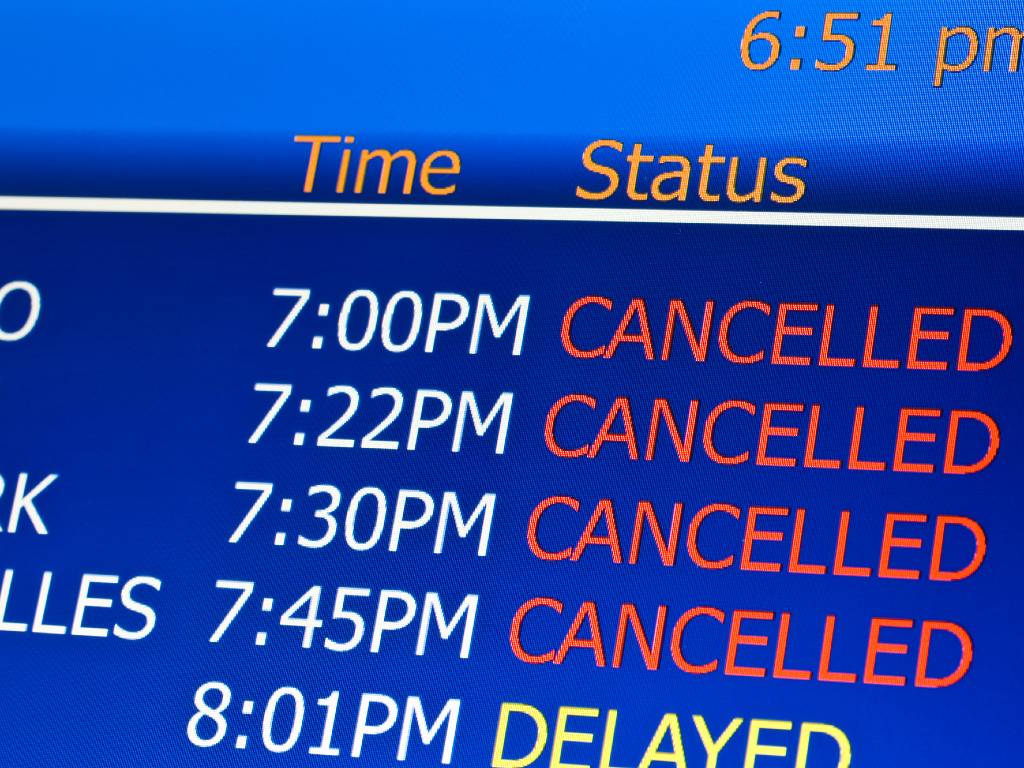If you believe the ads, you’d think U.S. airlines were in the hospitality business. Watch a TV spot or browse their websites and you’ll see smiling flight attendants, promises of more legroom, and perks designed to make us feel like honored guests. They shower us with frequent flyer programs, elite status benefits, companion tickets, and even a warm chocolate chip cookie here and there.
But pull back the curtain, and it’s mostly fake. Away from the ads and promotions, the very same airlines are lobbying Washington to strip away our basic consumer protections we’ve come to expect when we buy an airline ticket.
This duplicity came to light when it was revealed that Airlines for America (A4A), the trade group representing Alaska, American, Delta, JetBlue, Southwest, United, and cargo carriers like FedEx and UPS—filed a 93-page request with the Department of Transportation (DOT).
The filing itself was obscure, buried in the bureaucracy of a Trump-era deregulation initiative, and might never have surfaced if not for the work of William McGee, a senior fellow at the American Economic Liberties Project.
The airlines’ argument, put simply, is that too many rules burden them. They’d prefer to decide how much flexibility—or rigidity—to offer passengers, without federal mandates getting in the way. But what they’re really asking for is the right to keep our money when they fail to deliver the service we purchased.
Saying goodbye to refunds
One of the most striking requests is the push to eliminate mandatory refunds for canceled or significantly delayed flights. Today, if an airline cancels a flight or makes a significant schedule change, you’re entitled to your money back, and not simply a voucher. That rule has saved travelers billions, especially during the pandemic when thousands of flights evaporated overnight.
And let’s not forget how ugly that period was: United, Delta, and American were all caught dragging their feet on refunds, sometimes holding billions in customer money for months. United even changed its refund policy online to make reimbursements harder to claim until the DOT stepped in. Without legal mandates, many of those refunds would never have happened.
No more transparency
The filing also seeks to weaken rules requiring airlines to provide clear information about fees, delays, and tarmac wait times. Currently, DOT mandates that airlines disclose baggage fees and other charges upfront, so we know the real cost before booking. They also must report on-time performance and avoid holding passengers hostage on planes for hours without food, water, or working toilets.
These rules came about after passengers suffered real, miserable experiences. In 2007, JetBlue left customers stranded on the tarmac for 11 hours during an ice storm. Similar incidents across multiple airlines led the DOT to set strict tarmac limits. If the airlines now get their way, all this protection for us will simply vanish.
Europe follows a different path
What’s striking is how out of step we are compared to Europe. Under EU Regulation 261, passengers have rights that we can only dream of. If your flight is canceled or significantly delayed, you’re not just entitled to a refund—you may also qualify for cash compensation of €250 to €600, depending on the distance and length of the delay. Also airlines are required to provide meals and hotel accommodations if you’re stranded.
Contrast these with the U.S., where the best we can get is a rebooking or a voucher—and now the airlines are working to erase even the refund requirement.
| Current Protection (U.S.) | What Airlines Are Lobbying For | Impact on Passengers |
|---|---|---|
| Refunds for canceled or significantly delayed flights | Eliminate or weaken refund rules | Passengers could be forced to accept vouchers or credits instead of cash |
| Upfront disclosure of baggage and seat fees | Reduce transparency requirements | Hidden fees and surprise costs at checkout |
| On-time performance reporting | Relax reporting rules | Harder for travelers to compare airline reliability |
| Tarmac delay limits (3 hours domestic, 4 hours international) | Loosen or repeal requirements | Longer delays stuck on planes without food, water, or working toilets |
The DOT began purging these regulations this week by removing one of the most reasonable requirements initiated by the Biden administration, a rule that requires the airlines to offer essential services and compensation in the event the airline is the cause for a cancelation or delay. The Biden administration is also at fault for not pushing for these regulations more quickly while he was in office.
This week the Department issued an Advanced Notice of Proposed Rulemaking (ANPRM) that examined requiring U.S. and foreign air carriers to adopt and adhere to customer service plans identifying essential services (meals, rebooking, hotel, transportation to or from hotel, timely customer service) and compensation which airlines would be required to provide to mitigate passenger inconveniences when the cause of a cancellation or delay for flights to, within and from the United States was due to circumstances within the airline’s control. Consistent with Department and administration priorities, the Department plans to withdraw the ANPRM.
Only in the airline industry does canceling your flight become a profitable business model. It’s really a crime that the industry goes to such extreme efforts to deny us what would be considered normal compensation in most other industries that sell a product or service to the consumer.
I’d love to see just one airline position themselves as the one that provides reasonable assistance to their customers and separate themselves from the others that place their profits over doing what is right.
Note:
When flying to and from Europe from the U.S., you have protection under the toughter European regulations when flying on EU/EEA/UK-based carriers to the EU/EEA/UK, and on all flights departing from the EU/EEA/UK, regardless of carrier.


I always try to book my flights to Europe on the Airline of the country of my destination for the very reason you state – the European Commission is better at looking out for me.